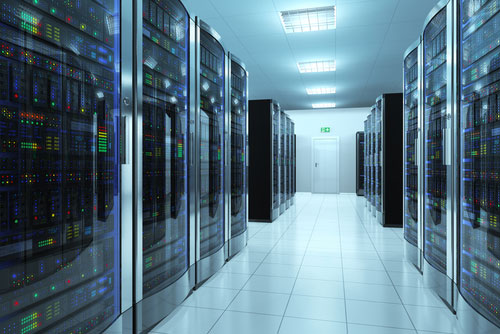What if the future humankind needs isn’t a high tech one? This is in any case what the defenders of “Low-Tech” stand for. But what are the reasons behind their position?
Is ecology suffering from schizophrenia? When we look at the relationship between environmentalists and technological developments, we can legitimately ask this question.
While some support a high-tech future in ecology, others are ready to give up on all modern technology. The debate is ON but in the midst of it, an interesting concept appeared: low-tech. Let’s take a closer look at the reasons behind those who defend an ecological future is a low-tech one.
Technology And Ecology: From High Tech To Low Tech

Within ecological thinking, there are, on the one hand, those who clearly assume a “high tech” position. According to them, solving ecological problems has necessarily to do with new technologies. They are sure: the ecological future will be made of advanced technologies, ranging from robotics to artificial intelligence through connected devices constantly sending fresh information.
One only has to look at the news related to ecology to realize the high tech movement is deeply rooted in the collective mind. Elon Musk’s hyperloop is seen as the ecological transportation alternative of the future. State-of-the-art turbines will help produce energy for intelligent and ultra-connected cities. All-electric autonomous cars will circulate on (solar) roads without drivers thanks to artificial intelligence. And last generation thorium plants will create enough energy to power this well-oiled machinery. Or at least so do high tech advocates believe.
On the other hand, there are more skeptical ecologists who believe technology will do more harm than good. For them, technology pollutes as it requires the extractions of Earth minerals and other raw materials while destroying natural resources and using fossil fuels and other sources of energy. On the basis of the work of Jacques Ellul (The Technical Society), Gunther Anders (Obsolescence of Man), Hans Jonas (The Principle of Responsibility) or Bertrand Charbonneau (The System and Chaos) a critical understanding of technology is being discussed today – the low tech movement.
High Tech And Technology Dependence

Yes, technology allowed for progress in medicine, a deeper understanding of the human body, improvements in life in general or the discovery of new sources of energy, especially renewables. Among so many other positive things it is thanks to technology that today many people have an easy existence and a better quality of life than ever before.
However, Low Tech proponents blame technology for two main things. First, for the fact that it has been established as a closed system, and then for the fact that it has become so complex that it is now very difficult and nearly impossible to control its externalities.
The systemic aspect of technology is particularly simple to observe: nowadays our whole life depends on technology. To move around, get informed, work, for simple activities such as cooking, meditating or getting entertained we now depend on devices and apps that are built from complex technologies. Sometimes, it enough to observe the hard time people face when there’s a power cut or when cellphones run out ot battery.
But there’s more to it than just benefits. It seems that our systematic use of technological tools makes us lose our most natural abilities. Researchers have shown that with the generalization of the car, we lost our natural ability to walk properly or to run with the right posture. Other studies have shown that by relying on GPS technologies, our sense of direction is diminishing. Or that the massive use of smartphones made us lose our memory and troubles us to fall asleep at night.
When High Tech Becomes Too Complex And Uncontrollable – Part 1

As for the complexity of the technology, it may be a bit harder to see it at first. As a consumer, we tend to only observe and analyze the emerging part of the technologies we use on a daily basis. And at the very least, they seem to make life easier for us and solve some kind of need we might have. But behind what we might see as intrinsically good technologies, other types of complexities lie.
For instance, a smartphone is made of thousands of components that are extracted from the Earth and travel long distances to be united and assembled in warehouses and workshops – to then be sent across the world to be sold and later disposed of without much control. A solar panel whose benefits seem so obvious and positive actually hides enormous amounts of resources and industrial processes.
Behind the Internet (the network that seems so easy to connect to), thousands of data centers and online clouds that spend lots of energy to be kept on all the time hiding. As well as computers, smartphones, smartwatches, smart TVs and other cutting-edge technologies made from scarce resources.
When High Tech Becomes Too Complex And Uncontrollable – Part 2

At the same time, the more an economic and social system relies on complex technologies, the more this system needs energy and resources (and often resources that are difficult to access). To understand it, let’s take a simple example: making mayonnaise. Hand mayonnaise requires only putting the ingredients together in some container, one arm, a whip and a few minutes of effort.
On the other hand, making mayonnaise with an electric mixer requires equipment made up of electrical circuits that demand electrical power and, therefore, create the need for electrical distribution and production. So by adding a technological element there’s now more complexity and energy and resources consumed. And as the principles of thermodynamics say each time we add complexity to a system its energy efficiency decreases (it needs more energy to accomplish the same task) we end up losing effectiveness. So even though we have the opposite impression, it takes much more human labor (to build the device and infrastructure to supply it), resources, and energy to prepare a mayonnaise with a food mixer than with a simple whip.
The conviction of those who oppose the High Tech movement is that the technological system has become so important in our lives, so complex and so resource and energy-demanding that we are no longer able to assume the negative externalities, especially in ecological terms. Thus, even when we develop technologies to address an ecological issue, it almost always ends up creating another ecological problem elsewhere. For example, renewable energies such as solar panels (partly) solve the problem of CO2 emissions… But they also create another problem as they demand the extraction of resources – something we know isn’t either sustainable in the long term nor good for the environment. So perhaps, in the end, we’re replacing one problem with another?
When New Solutions Can Turn Into Future Problems

These are some of the reasons why some people today believe the future humankind should aim for shouldn’t be a High Tech one. Simply because after a while, the enormous needs for technology will reach a physical limit: lack of resources, lack of energy, global warming… And if until today we have been more or less successful in “repelling” the problem, it will not last forever. Just think that only 20% of e-waste is recycled every year and so, our of the 48,5 million tonnes of e-waste produced in 2018, most will be burnt or end up on landfills.
Moreover, consider as well that the transition to renewable energy needs a huge amount of lithium – whose reserves are not eternal. And even if we develop alternative batteries (sodium for example), we will always need to exploit natural resources that are limited to the mass production system we have. However, since technology and our resource and energy needs are increasing, innovation seems destined to slow down or to change scale at some point in time – which indeed means adopting a more “low-tech” posture.
Nevertheless, these findings do not necessarily lead to rejecting all the ideas of technical progress or innovation. Simply, Low Tech advocates believe many of our needs can be met without depending on highly developed technologies. In fact, the Low-Tech movement first developed around Ernst Friedrich Schumacher and his book “Small Is Beautiful – a human-sized society” that advocated for “human-sized” technology and a life less dependent on technical complexities. In summary, he supported technology offering a return to basics and discarding things that are more convenient and add complexity and not necessarily value.
Will The Future Be Low Tech?

The philosophy of Low Tech is to use renewable materials such as wood or animal or vegetable materials to make simple tools and techniques that can meet our needs. There’s also a point: why make simple things complicated? The simplest example of the Low-Tech is probably the bike: it is an innovation that allows you to move daily much faster and easier than walking… But it is very simple and requires only a few resources or energy, unlike for example the car. But there are dozens of other examples: pedal cars, wooden wind turbines, solar ovens, architectural methods to create “passive” wooden houses, or techniques derived from permaculture. These are all “innovations” to do as much with less energy and fewer resources. The Low-Tech also supports the rehabilitation of manual trades and practical skills such as masonry, forging, weaving, carpentry, in order to find productions less dependent on technology, but also more sustainable.
In the end, the Low-Tech movement proposes the return to a certain form of simplicity that can make us question what our true needs are. Do we really need a phone that does everything for us? Do we really need so many electrical devices? Do we really need 400 TV channels? Do we really need to travel 3km using a car? And as a result of questioning our needs, the Low Tech mov. offers simpler, more flexible, less complex, and above all more ecological, solutions.
So, will the future be Low-Tech? Who knows. In any case, the idea of a returning to basics is shared by many. No doubt we will eventually need to slow down our mass production, consumption and disposal of technological devices. Or we’ll at least need to get a circular economy model working super efficiently to keep or speed up our current tech addiction. One thing is for sure, a linear approach will sooner or later be unsustainable as resources are finite and pollution weighs heavily.
Image credits to internet on Shutterstock, abstract on Shutterstock, connection on Shutterstock, business on Shutterstock, photo on Shutterstock, mayo on Shutterstock, ewaste on Shutterstock and farmer on Shutterstock

